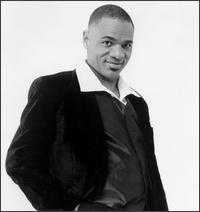From his beginnings in Memphis, where he played in his father's church choir, Kirk Whalum drew inspiration from the rich musical traditions of that city, including gospel, R&B, blues, and eventually jazz. He received a scholarship to attend music school at Texas Southern University, where he formed a band in 1979 and began playing on the local club circuit. When he opened for Bob James in Houston in 1984, the pianist was impressed with Whalum's expressive style and invited him to play on his album 12. Whalum signed with Columbia and released his first solo album, Floppy Disk, in 1985. That album and the next two -- And You Know That! (1988) and The Promise (1989) -- were produced by James, continuing their fruitful partnership. The early '90s brought two more Columbia albums -- Caché in 1993 and In This Life in 1995 -- each of which brought Whalum increasing commercial attention and critical praise. A duet with James titled "Joined at the Hip" took Whalum's career to a new level with his first Grammy nomination. In 1997, Whalum signed with Warner Brothers. His first solo album for them, Colors, was released that year and perhaps more than any other album showed Whalum's ability to synthesize music from a variety of sources to produce a fusion of pop, jazz, and R&B. The following year, Gospel According to Jazz, Chapter 1 would show his ability to return to the music of his childhood stylistically, while also pursuing the kind of spiritual depth that has a long history in jazz, echoing artists like John Coltrane in taking advantage of the saxophone's unique expressive qualities. The '90s also brought Whalum an amazingly diverse series of session and touring jobs, working with artists like Whitney Houston, Babyface, Yolanda Adams, Take 6, Bebe & Cece Winans, Barbra Streisand, Edwin Hawkins, Quincy Jones, Kevin Mahogany, Al Green, and Luther Vandross. He has worked on a number of film scores, including those for The Prince of Tides, Boyz in the Hood, Grand Canyon, and Cousins. His sax solo was featured on Whitney Houston's hit song "I Will Always Love You," on the soundtrack for The Bodyguard. The fan base that Whalum had been building throughout the '80s and '90s exploded with his 1998 release, For You, which spent nearly two years at the top of the Billboard Contemporary Jazz Chart and yielded four Top Ten NAC hits. His self-produced album, Hymns in the Garden, which followed in 2000, made a much quieter impact, but was critically acclaimed and earned Whalum a second Grammy nomination. Also in 2000, Whalum recorded again for Warner Brothers and released Unconditional, his third album for the label. Unconditional returned to the contemporary jazz style that had marked his early releases, with a few unexpected covers, including versions of Macy Gray's "I Try" and N'Sync's "God Must Have Spent a Little More Time on You." "Can't Stop the Rain," a song written and sung by Shai, is the only other song on the album not composed by Whalum. Since 2001, Whalum has released four studio albums, including his second volume of gospel songs The Gospel According to Jazz: Chapter 2 and Kirk Whalum Performs the Babyface Songbook released on Rendezvous Music in 2005. ~ Stacia Proefrock, All Music Guide
